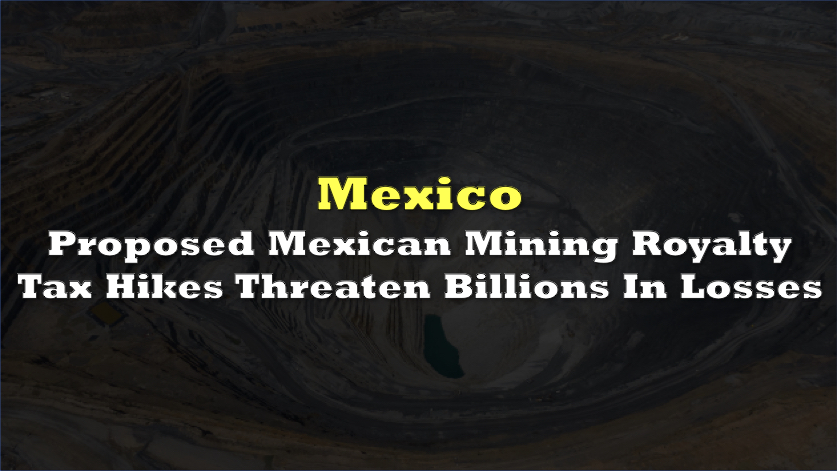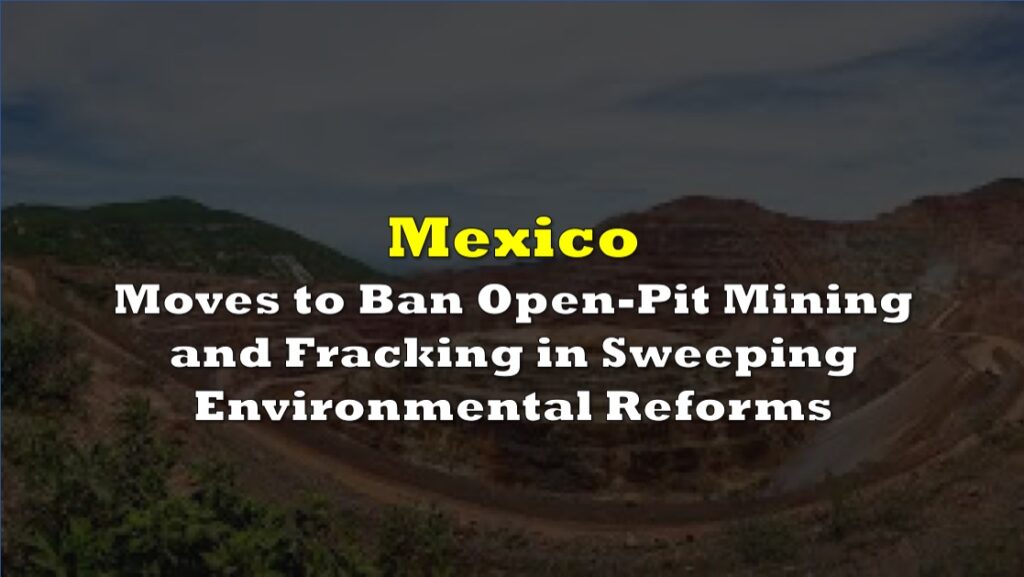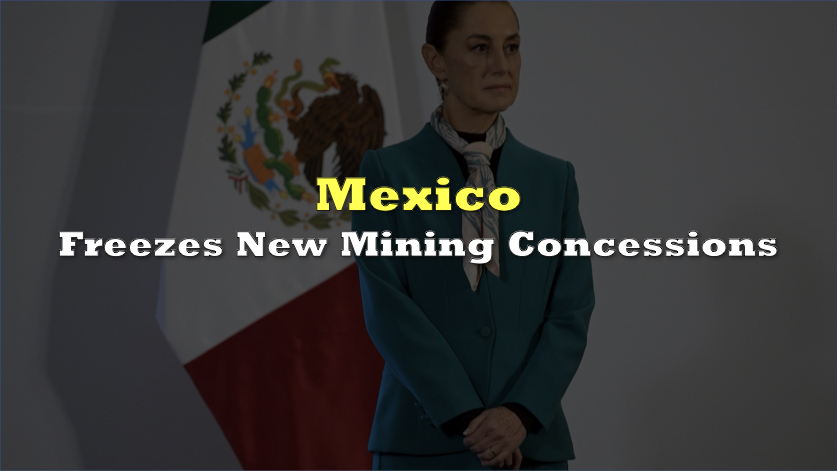Mexico’s government is looking to increase revenues from its mining sector, pushing forward with significant regulatory reforms and increased taxation on the sector. As part of its 2024 budget proposal, the Mexican government has recommended increasing mining royalties, citing rising metal prices as justification.
The changes would raise two key royalties from 7.5% to 8.5% and 0.5% to 1.0%, respectively. While aimed at capturing a greater share of mining profits, the proposed hikes come at a precarious time for the industry.
“The measure… would have an impact on a sector that has already seen its contributions and investments reduced due to paralyzation [of the sector],” stated Mexico’s mining chamber (Camimex) in response to the proposal. The group, which represents major players like Grupo Mexico, Industrias Peñoles, and Newmont’s Peñasquito mine, warned that the royalty increase, coupled with ongoing regulatory challenges, could block more than $6.9 billion in investments over the next two years.
Mexico is the world’s largest silver producer and a leading source of copper and gold, with mining contributing approximately 2.5% of the nation’s GDP. However, the sector’s importance to the national economy is being overshadowed by growing concerns about its environmental and social impact.
Compared to other mining-heavy nations like Chile, Peru, and Canada, Mexico’s regulatory environment is becoming increasingly stringent, making it less attractive to investors. The government’s move to shorten mining concessions from 50 years to 30, alongside stricter water extraction permits, has already dampened exploration activity.
Beyond the proposed royalty hikes, Mexico’s mining sector faces a host of challenges stemming from former President Andrés Manuel López Obrador’s (AMLO) ambitious environmental reforms. These included a potential ban on open-pit mining, tighter restrictions on water usage, and mandatory pre-consultations with local communities.
Open-pit mining, a common method for extracting surface minerals, has drawn criticism for its environmental consequences, including deforestation, water contamination, and habitat destruction. While the proposed ban remains in legislative limbo, its looming presence has unnerved stakeholders.
A Camimex report projected that such reforms could cost the industry $9 billion in lost investments and lead to the elimination of over 420,000 jobs. Critics argue that these measures disproportionately affect junior explorers and foreign companies, particularly Canadian firms, which have historically been key players in Mexico’s mining investment landscape.
The recent inauguration of Claudia Sheinbaum as Mexico’s new president has raised hopes for a more balanced approach to mining regulation. Unlike her predecessor, AMLO, Sheinbaum has refrained from explicitly supporting a ban on open-pit mining. Her administration’s 100-point plan, which outlines priorities for economic growth and sustainability, notably excludes any mention of the controversial policy.
Industry analysts suggest this omission could signal a softer stance on mining, aimed at balancing environmental concerns with economic imperatives. “Claudia Sheinbaum just released her 100 promises as president of Mexico. Guess what she didn’t mention? An open-pit mining ban,” noted industry expert Brandon Beylo.
Information for this briefing was found via Mining.com and the sources mentioned. The author has no securities or affiliations related to this organization. Not a recommendation to buy or sell. Always do additional research and consult a professional before purchasing a security. The author holds no licenses.









